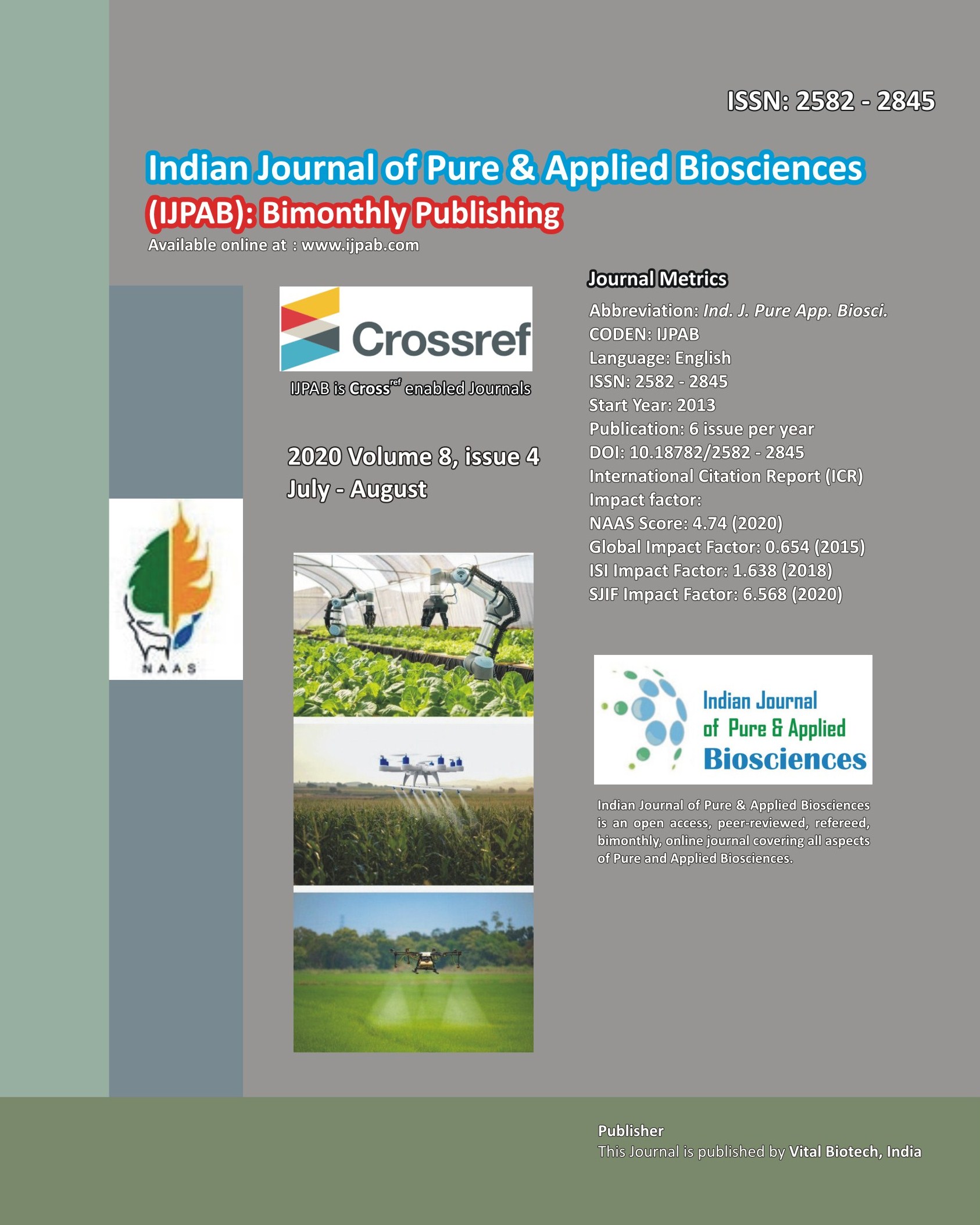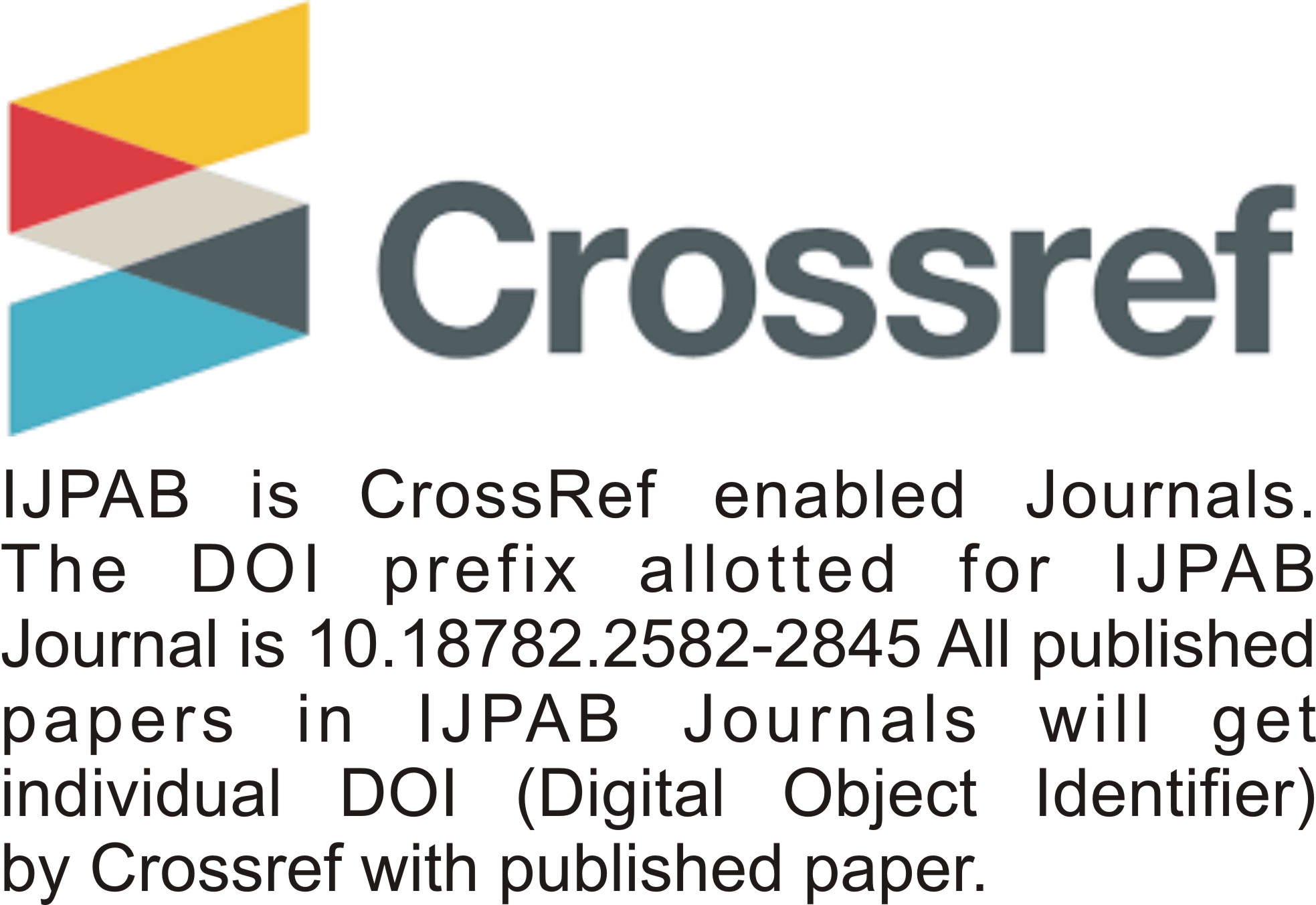
-
No. 772, Basant Vihar, Kota
Rajasthan-324009 India
-
Call Us On
+91 9784677044
-
Mail Us @
editor@ijpab.com
Indian Journal of Pure & Applied Biosciences (IJPAB)
Year : 2020, Volume : 8, Issue : 4
First page : (228) Last page : (236)
Article doi: : http://dx.doi.org/10.18782/2582-2845.8277
Physiological Characterization of Elite Chickpea (Cicer arietinum L.) Genotypes for Salinity Stress Tolerance
D. K. Janghel1*, A. K. Chhabra1, Neeraj Kumar2, Sarita Devi2 and V. S. Mor3
1Department of Genetics and Plant Breeding,
2Department of Botany and Plant Physiology,
3Department of Seed Science and Technology,
CCS Haryana Agricultural University, Hisar-125 004 (Haryana, India)
*Corresponding Author E-mail: jangheld1515@hau.ac.in
Received: 2.07.2020 | Revised: 8.08.2020 | Accepted: 13.08.2020
ABSTRACT
In this present investigation, the 12 elite chickpea genotypes characterized and classified into different classes based on physiological traits. Salinity stress reduced the relative water contents of leaves (RWC), membrane stability index (MSI), chlorophyll a and b contents, whereas, increased the relative stress injury (RSI) due to ionic and osmotic effects imposed by salt stress. Relative water contents and relative stress injury considered as a biomarker for selection of chickpea genotypes. Based on both the traits, genotypes viz., H 12-22, H 13-01, H 13-09, H 14-04, H 14-11, H 14-22 and H 15-05 had performed better in salinity stress chickpea field as compared to normal sown chickpea field. Moreover, a set of five important physiological traits included in the comparative ranking of chickpea genotypes with maximum times of higher ranks identified chickpea genotype H 13-01, H 14-22 and H 15-06 followed by H 14-04 and RSG 931. Therefore, genotypes H 13-01, H 14-22 and H 15-06 identified for salinity tolerance in the present study based on both biomarker analysis and comparative study which could be utilized for further improvement in salinity tolerance in chickpea germplasm for the development of elite breeding materials and improved chickpea varieties in future breeding programme.
Keywords: Chickpea, NaCl, RWC, RSI, Chlorophyll, MSI.
Full Text : PDF; Journal doi : http://dx.doi.org/10.18782
Cite this article: Janghel, D.K., Chhabra, A.K., Kumar, N., Devi, S., & Mor, V.S. (2020). Physiological Characterization of Elite Chickpea (Cicer arietinum L.) Genotypes for Salinity Stress Tolerance, Ind. J. Pure App. Biosci. 8(4), 228-236. doi: http://dx.doi.org/10.18782/2582-2845.8277

